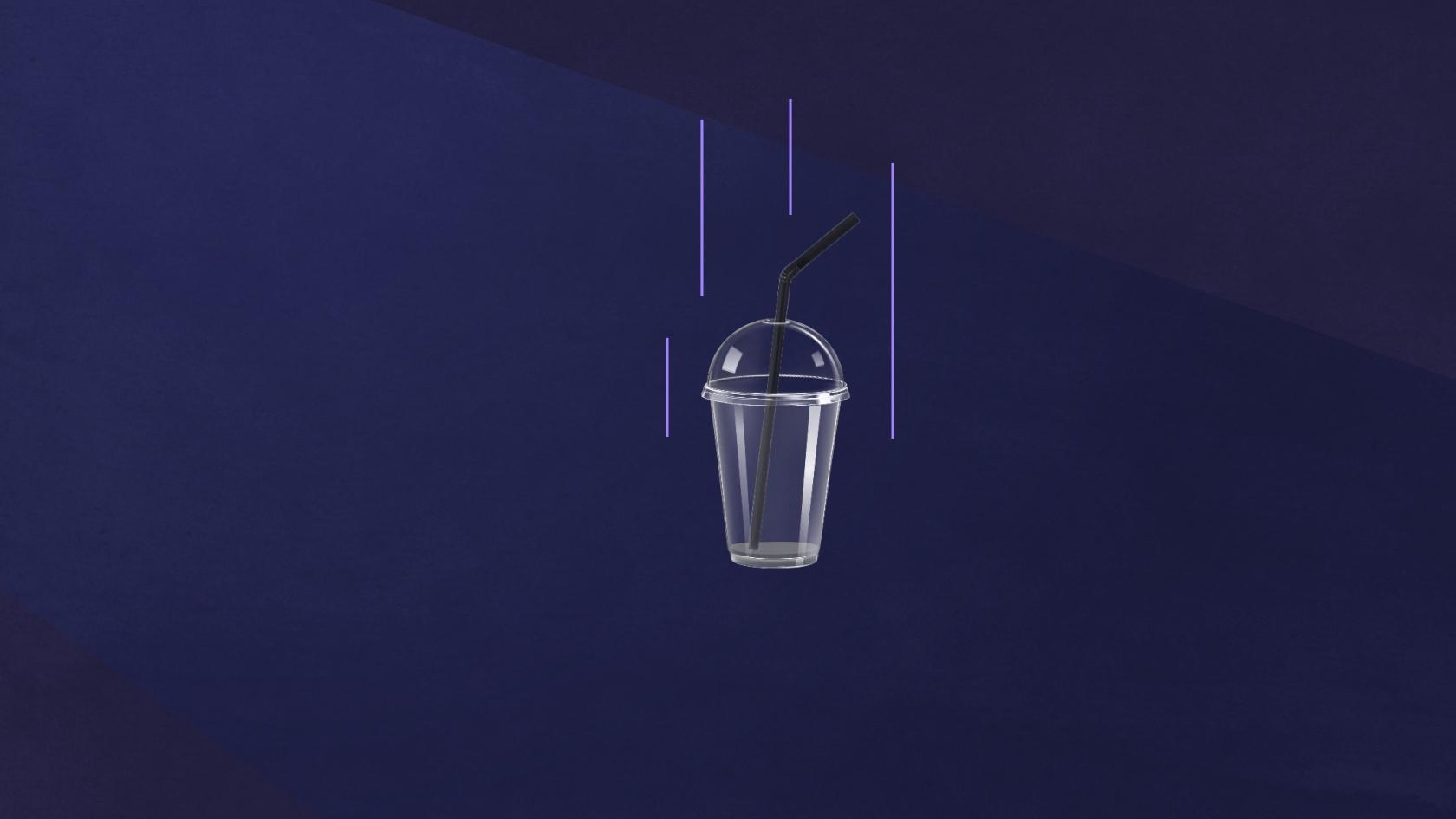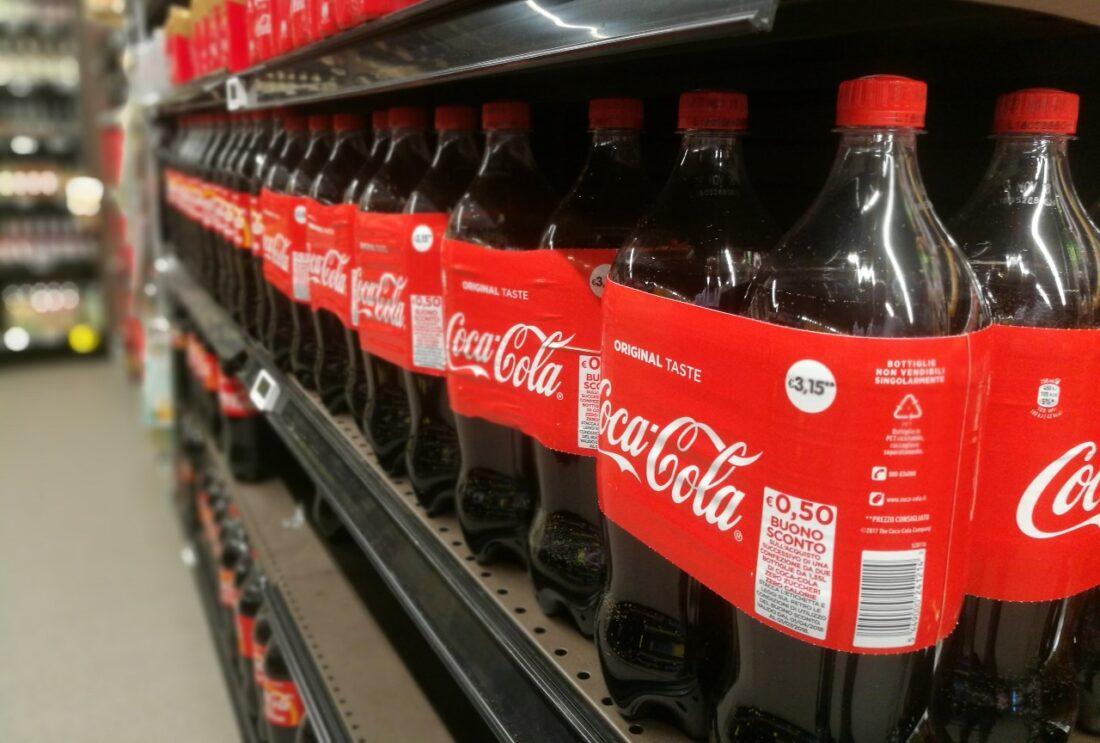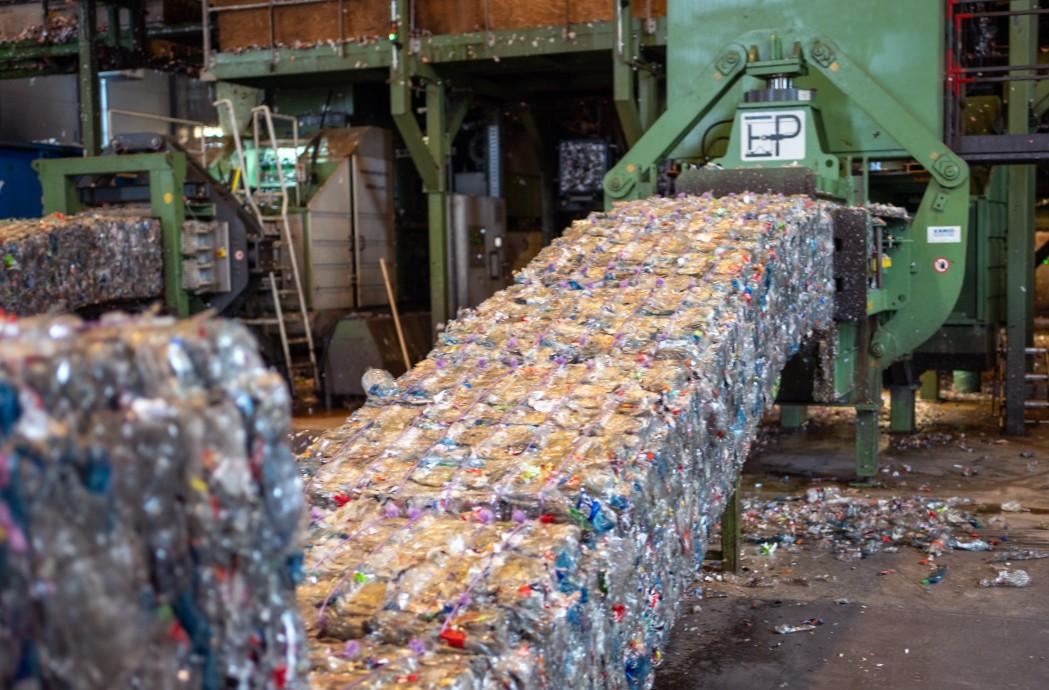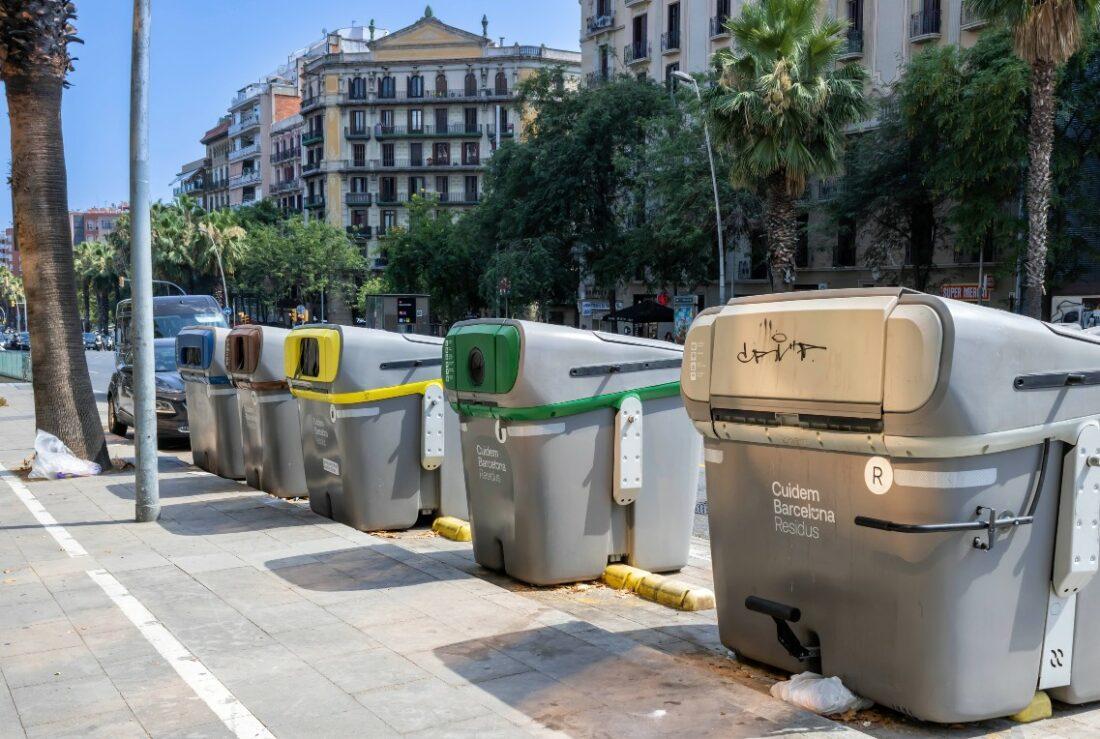Producers wield power over plastic pollution

Alexia Barakou
Influential producer responsibility groups, often run by big industry names, help shape local waste collection and recycling efforts across Europe. But criticism of the schemes is growing louder.
Housed in the same Parisian building as the ritzy retail store Galerie Lafayette and opposite an opera house, it is an unlikely setting for a non-profit firm dealing with everyday waste. Yet Citeo is one of Europe’s most powerful producer responsibility organisations or PROs, bodies in charge of planning the end-of-life of packaging materials, such as plastic waste. Defined by European and national laws, PROs are often not-for-profit, but are controlled by billion-euro producers. Coca-Cola, Unilever and Nestlé are among Citeo’s shareholders.
PROs charge fees from members. The fees are calculated from the amount of packaging put on the market while selling bottled water, soft drinks or confectionaries. The money is supposed to fund local waste collection and help accelerate recycling processes. But with EU recycling efforts faltering, PROs are facing growing criticism.
Most nations are woefully short of EU recycling targets. More plastic packaging waste is produced in the EU now than a decade ago, and 60 per cent of it is still not recycled.
Some PROs are accused of undercutting the municipalities they help fund, others have allegedly underreported plastic volumes, while thousands of tonnes more plastics remain unaccounted for under PRO-run programmes.
“The problem,” says Flore Berlingen, a former director of Zero Waste France, “is that we privatised waste management policies by handing them over to these organisations. What should be a matter of public policy choices and debates has been gradually delegated.”
PROs charge fees from members. The fees are calculated from the amount of packaging put on the market while selling bottled water, soft drinks or confectionaries. The money is supposed to fund local waste collection and help accelerate recycling processes. But with EU recycling efforts faltering, PROs are facing growing criticism.
Most nations are woefully short of EU recycling targets. More plastic packaging waste is produced in the EU now than a decade ago, and 60 per cent of it is still not recycled.
Some PROs are accused of undercutting the municipalities they help fund, others have allegedly underreported plastic volumes, while thousands of tonnes more plastics remain unaccounted for under PRO-run programmes.
“The problem,” says Flore Berlingen, a former director of Zero Waste France, “is that we privatised waste management policies by handing them over to these organisations. What should be a matter of public policy choices and debates has been gradually delegated.”

Plastic producers are charged fees for the packaging they put on the market.Shutterstock
PROs are tasked with ensuring polluters pay a price for producing or selling plastic goods. This preventive policy idea stems from the 1990s and is called Extended Producer Responsibility, EPR.
The EU Commission expanded the concept in its 2008 waste directive, calling for a focus on product design “in order to reduce their environmental impacts”. But no mandatory targets were set. “Actions to prevent waste have been missing for 20 years,” says Helmut Maurer, former senior expert in the European Commission’s directorate for circular economy. “Instead we have fully concentrated on recycling.”
In many countries PROs also run the business of recycling plastics and sending non-recyclable plastics to incinerators or landfills. PROs often decide how much producers pay, and can operate as near-monopolies, dictating how much authorities, sorting plants, and recycling firms are paid.
In France, Citeo collects fees from Danone and other multinationals before distributing most of it to local authorities overseeing waste collection and recycling. Municipalities, however, complain the funds are not enough, and NGOs accuse governments of allowing producers to “push the costs of plastics clean-up onto taxpayers”.
“If we compare the €1.6 billion in net costs with the approximately €644 million paid by Citeo to local authorities in 2021, we find that local authorities have €1 billion left to pay,” says a spokesperson for Amorce, France’s main local governments union. Citeo said it cannot comment on the case but added that in 2021 it supported local authorities with €847 million. A spokesperson added: “Through these eco-contributions from marketers, Citeo finances 73 per cent of the gross reference costs of collection, sorting and treatment of household packaging.”
Norwegian municipalities are not much happier. “We pay more than one billion NOK [around €88.6 million] per year for handling plastic packaging waste that the producers should have financed,” says Svein Kamfjord, director at Samfunnsbedriftene, an umbrella organisation for public waste companies.
The EU Commission expanded the concept in its 2008 waste directive, calling for a focus on product design “in order to reduce their environmental impacts”. But no mandatory targets were set. “Actions to prevent waste have been missing for 20 years,” says Helmut Maurer, former senior expert in the European Commission’s directorate for circular economy. “Instead we have fully concentrated on recycling.”
Short-changed local authorities
In many countries PROs also run the business of recycling plastics and sending non-recyclable plastics to incinerators or landfills. PROs often decide how much producers pay, and can operate as near-monopolies, dictating how much authorities, sorting plants, and recycling firms are paid.
In France, Citeo collects fees from Danone and other multinationals before distributing most of it to local authorities overseeing waste collection and recycling. Municipalities, however, complain the funds are not enough, and NGOs accuse governments of allowing producers to “push the costs of plastics clean-up onto taxpayers”.
“If we compare the €1.6 billion in net costs with the approximately €644 million paid by Citeo to local authorities in 2021, we find that local authorities have €1 billion left to pay,” says a spokesperson for Amorce, France’s main local governments union. Citeo said it cannot comment on the case but added that in 2021 it supported local authorities with €847 million. A spokesperson added: “Through these eco-contributions from marketers, Citeo finances 73 per cent of the gross reference costs of collection, sorting and treatment of household packaging.”
Norwegian municipalities are not much happier. “We pay more than one billion NOK [around €88.6 million] per year for handling plastic packaging waste that the producers should have financed,” says Svein Kamfjord, director at Samfunnsbedriftene, an umbrella organisation for public waste companies.

A plastic bottle recycling facility in Norway.Amund Trellevik
Italy’s main PRO, Conai, and its plastic branch Corepla, are also criticised. A waste official in a large Italian city says that “costs for collecting plastic are 2.5 times higher than the contribution received from Corepla”.
An employee at Anci, Italy’s municipalities association, meanwhile, said Conai refused their request to use local funds for waste prevention campaigns. Instead, all money received must be spent on recycling campaigns.
And while financial support for municipalities appears to be flatlining, PROs battle for new members by offering low fees.
Based on an average weight (9.8g), producers pay roughly 42 cents in every euro for 100 0.5lt bottles put on the market in Spain, 32 cents in France and just two cents in Italy. This can encourage more plastic production as PRO revenues largely come from plastics entering a market.
Conai is proud to have Europe’s lowest fees. But their domination recently came under threat. It centred on PET plastic, which is the easiest to recycle and found in most of the almost 14 million water bottles sold in Italy each year. In 2022 PET plastic cost producers €150 per tonne with Conai. A year later it nosedived to €20. Now, a competitor, Coripet, is targeting Conai’s members by offering prices of €16 per tonne.
Such low costs are unlikely to encourage producers to make less plastic in the first place. Although recycled plastic in the EU has vastly increased, 93 per cent of all plastic produced globally is still the cheaper virgin variety.
Even if the fees paid or plastic received is lower than desired, this itself can prove advantageous. Largely because some PROs, as the responsible body for data on plastic volume put on the market, help collate national recycling statistics.
If the reported figure is lower than the actual figure, the recycling rate automatically goes up, as it measures how much material is recovered from the total amount put on the market. In the case of plastics, from 2021, the rate also determines the amount of the European plastic tax that states pay to the European budget.
“The volume of plastic packaging put on the market, is not verifiable,” explains a former employee of Conai. “It is based on the self-declarations of those who then have to pay the EPR fee.”
The Balearic Islands’ government, for instance, carried out two studies that question the official reported plastic figures from the Spanish PRO, Ecoembes.
One report stated that in 2016 its members declared that 49,385 tonnes of light packaging was placed on the market, while the analysis of packaging flows along the entire value chain placed that figure at 91,965 tonnes. If the Balearic government’s calculations were true, it would mean that the packaging placed on the market was 86 per cent more than that declared by producers.
“The results of those reports showed that Ecoembes was misleading us with their data,” says report author Vicenç Vidal. “Their data are not at all credible.” Ecoembes, for its part, claims that reports had “serious methodological deficiencies” and that subsequent studies refuted its data.
An employee at Anci, Italy’s municipalities association, meanwhile, said Conai refused their request to use local funds for waste prevention campaigns. Instead, all money received must be spent on recycling campaigns.
Producers pay little for pollution
And while financial support for municipalities appears to be flatlining, PROs battle for new members by offering low fees.
Based on an average weight (9.8g), producers pay roughly 42 cents in every euro for 100 0.5lt bottles put on the market in Spain, 32 cents in France and just two cents in Italy. This can encourage more plastic production as PRO revenues largely come from plastics entering a market.
Conai is proud to have Europe’s lowest fees. But their domination recently came under threat. It centred on PET plastic, which is the easiest to recycle and found in most of the almost 14 million water bottles sold in Italy each year. In 2022 PET plastic cost producers €150 per tonne with Conai. A year later it nosedived to €20. Now, a competitor, Coripet, is targeting Conai’s members by offering prices of €16 per tonne.
Such low costs are unlikely to encourage producers to make less plastic in the first place. Although recycled plastic in the EU has vastly increased, 93 per cent of all plastic produced globally is still the cheaper virgin variety.
Underreporting concerns
Even if the fees paid or plastic received is lower than desired, this itself can prove advantageous. Largely because some PROs, as the responsible body for data on plastic volume put on the market, help collate national recycling statistics.
If the reported figure is lower than the actual figure, the recycling rate automatically goes up, as it measures how much material is recovered from the total amount put on the market. In the case of plastics, from 2021, the rate also determines the amount of the European plastic tax that states pay to the European budget.
“The volume of plastic packaging put on the market, is not verifiable,” explains a former employee of Conai. “It is based on the self-declarations of those who then have to pay the EPR fee.”
The Balearic Islands’ government, for instance, carried out two studies that question the official reported plastic figures from the Spanish PRO, Ecoembes.
One report stated that in 2016 its members declared that 49,385 tonnes of light packaging was placed on the market, while the analysis of packaging flows along the entire value chain placed that figure at 91,965 tonnes. If the Balearic government’s calculations were true, it would mean that the packaging placed on the market was 86 per cent more than that declared by producers.
“The results of those reports showed that Ecoembes was misleading us with their data,” says report author Vicenç Vidal. “Their data are not at all credible.” Ecoembes, for its part, claims that reports had “serious methodological deficiencies” and that subsequent studies refuted its data.

PRO Ecoembes says 15 per cent of plastic packaging produced in Spain is unaccounted for.Shutterstock
In Portugal, Rui Berkemeir, a waste specialist for ZERO NGO, found discrepancies between recycling rates and tonnes of plastic put on the market. In the end the “recycling rate of plastic packaging in municipal waste was 15 per cent and not 44.3 per cent, as the state announced,” says Berkemeir. “The various governments and the APA [the state agency that oversees waste] turn a blind eye to the under-declaration of packaging.”
“Free-riding is a huge problem,” says Joaquim Quoden, managing director of PRO lobby group Expra. “In some countries it is five to 10 per cent, in others it is up to 50 per cent.”
PROs are also tasked with trying to ensure all plastic producers and retailers join the schemes in the first place. It can be an onerous challenge when some plastic firms operate nearer the black market or outside the jurisdiction altogether.
Grønt Punkt, an Oslo-based PRO, reported that almost 80,000 tonnes of household plastic packaging were put on the market by its members in 2022. The firm estimates that a further 60,000 tonnes went undeclared and unpaid for.
Spain’s Ecoembes, meanwhile, believes that 15 per cent of plastic packaging produced there is likely missed by the country each year. The group says it is largely due to retail blind spots such as online commerce or perhaps businesses unaware of PROs.
Italy’s Conai, which is also PRO for several other sectors, recently reported that it recovered €20 million in non-declared EPR fees in 2021. The group said it collected €1.5 billion in fees across all industries.
A significant chunk of monies received by PROs is spent on probing EU regulations aimed at tackling our mounting plastic waste problem.
“From an efficiency perspective it would make sense to have a single place where you collect data, meet your recycling targets, manage funds,” explains Janine Röling from the Dutch NGO Recycling Netwerk. “In reality, PROs have become lobby groups representing producers’ interests.”
Citeo spends up to €200,000 on Brussels lobbying annually, Ecoembes up to €300,000 and Expra, an EPR umbrella group, up to €400,000. Citeo and Expra signed a position paper in 2018 alongside big industry names to water down the EU single-use plastic directive.
‘Free-riding’
“Free-riding is a huge problem,” says Joaquim Quoden, managing director of PRO lobby group Expra. “In some countries it is five to 10 per cent, in others it is up to 50 per cent.”
PROs are also tasked with trying to ensure all plastic producers and retailers join the schemes in the first place. It can be an onerous challenge when some plastic firms operate nearer the black market or outside the jurisdiction altogether.
Grønt Punkt, an Oslo-based PRO, reported that almost 80,000 tonnes of household plastic packaging were put on the market by its members in 2022. The firm estimates that a further 60,000 tonnes went undeclared and unpaid for.
Spain’s Ecoembes, meanwhile, believes that 15 per cent of plastic packaging produced there is likely missed by the country each year. The group says it is largely due to retail blind spots such as online commerce or perhaps businesses unaware of PROs.
Italy’s Conai, which is also PRO for several other sectors, recently reported that it recovered €20 million in non-declared EPR fees in 2021. The group said it collected €1.5 billion in fees across all industries.
Lobby machine
A significant chunk of monies received by PROs is spent on probing EU regulations aimed at tackling our mounting plastic waste problem.
“From an efficiency perspective it would make sense to have a single place where you collect data, meet your recycling targets, manage funds,” explains Janine Röling from the Dutch NGO Recycling Netwerk. “In reality, PROs have become lobby groups representing producers’ interests.”
Citeo spends up to €200,000 on Brussels lobbying annually, Ecoembes up to €300,000 and Expra, an EPR umbrella group, up to €400,000. Citeo and Expra signed a position paper in 2018 alongside big industry names to water down the EU single-use plastic directive.
Conai, the Italian PRO, meanwhile, is actively campaigning against a bottle return scheme proposed in new EU packaging regulation, calling it “an unnecessary duplication of economic and environmental costs”.
In spite of such campaigning, most governments seem content with current EPR systems. However, things might change in the coming years. The 2018 European waste directive means that by the end of 2024, all member-states will have to establish schemes covering “all necessary costs of collection, sorting and recycling”, including littering, which would bring unwanted extra costs for the sector.
Röling says the EPR system should be reformed at its heart: “PROs should be drastically changed to include all relevant stakeholders, municipalities, government representatives, recycling companies, eco-design experts.”
An EPR reform was expected in Brussels for the next waste directive that the Commission will present in the spring. But this is now unlikely to go ahead. With a separate packaging regulation already on the table, policymakers and PROs will be busy enough as it is.
Editor: Chris Matthews
In spite of such campaigning, most governments seem content with current EPR systems. However, things might change in the coming years. The 2018 European waste directive means that by the end of 2024, all member-states will have to establish schemes covering “all necessary costs of collection, sorting and recycling”, including littering, which would bring unwanted extra costs for the sector.
Röling says the EPR system should be reformed at its heart: “PROs should be drastically changed to include all relevant stakeholders, municipalities, government representatives, recycling companies, eco-design experts.”
An EPR reform was expected in Brussels for the next waste directive that the Commission will present in the spring. But this is now unlikely to go ahead. With a separate packaging regulation already on the table, policymakers and PROs will be busy enough as it is.
Editor: Chris Matthews

